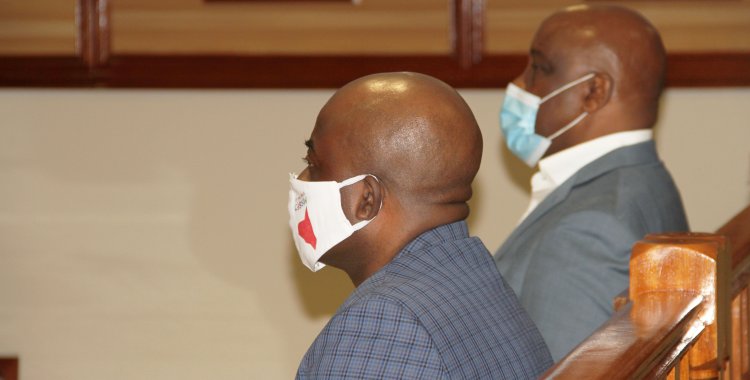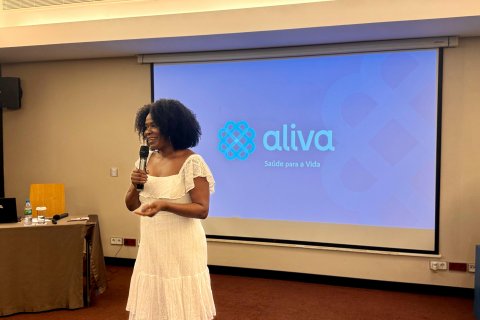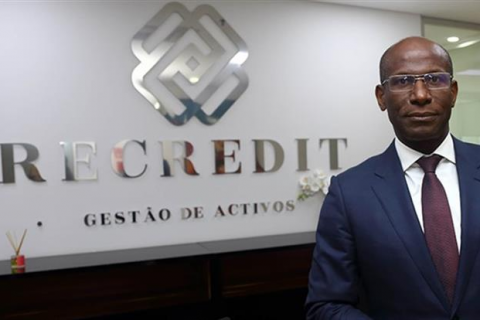"By the law in force at the time of the facts, the defendants would be punished, taking into account the amount defrauded, with the abstract penalty of 12 to 16 years of greater imprisonment, and with the same amount the new law provides an abstract framework of five to 14 years in prison," said this Friday, Manuel Domingos, magistrate of the MP, during the presentation of closing arguments.
During the presentation of closing arguments in court, the MP noted that the defendants should only be convicted of the crimes of embezzlement and money laundering, because the crime of improper receipt of advantages, of which they were previously accused, was now dismissed.
In the light of the new Criminal Code, in force since February 11, said Manuel Domingos, the crime of violation of rules of execution of the plan and budget, of which they had already been accused and pronounced, is without effect, that is, "it is decriminalized.
Manuel Rabelais, former Minister of Social Communication, is listed in the case as former director of the former Grecima, for acts committed between 2016 and 2017.
The trial has as co-accused Hilário Gaspar Santos, his former administrative assistant at Grecima.
In the criminal chamber of the Supreme Court (TS), the Public Ministry maintained in its closing arguments that it was "sufficiently proven" that the defendants incurred the crimes of embezzlement and money laundering.
According to Manuel Domingos, the defendants defrauded the state of more than 22.9 billion kwanzas, of which 4.6 billion kwanzas received directly from the General State Budget (OGE) and 18.3 billion kwanzas from foreign exchange received from the National Bank of Angola (BNA).
Grecima was created in May 2012, as an auxiliary body of the former President, José Eduardo dos Santos, and extinguished, in 2017, by the current President, João Lourenço.
The institution had accounts domiciled at Banco de Comércio Indústria (BCI) where a large part of the foreign currency acquired at the BNA was channeled, and other commercial banks, including BAI (Banco Angolano de Investimentos), BIC (Banco Internacional de Crédito), SOL and BPC (Banco de Poupança e Crédito).
The Public Prosecutor said Friday in his closing arguments that it was proven that Manuel Rabelais, assisted by Hilário Santos, "transformed Grecima into a real exchange house, attracting companies and individuals to deposit kwanzas in exchange for foreign currency, selling foreign currency at a higher exchange rate" than that practiced by the BNA.
The co-accused Hilário Gaspar Santos, said the magistrate of the Public Ministry, was the "recruiter of the companies" that provide foreign currency to Grecima.
"In addition to soliciting clients, violating the rules on financial transactions, the co-accused Hilário Gaspar Santos deposited 21.6 million kwanzas in Grecima's account without justifying the origin of the funds, a fact that was proven documentally," said Manuel Domingos.
Even after it was extinct, he said, the defendants "benefited from values" of Grecima and "destroyed documents to leave no trace.
For the Public Ministry, the arguments that the defendants acted under state secrecy "does not stand up," because, stressed the magistrate, state secrecy "does not imply absence of documents from the institution" and not "transfer of values in accounts of relatives to pay the university.
The defendants "were public officials, illegitimately appropriated public funds and therefore incur crimes of embezzlement," he noted.
As for the alleged authorization of the former president, the magistrate noted that José Eduardo dos Santos, in a letter to the TS, said he knew nothing of Grecima's operations, because the monitoring was done by the head of the House of Security of the President of the Republic.
"Evident practices" of money laundering were also announced by the Public Ministry during its closing arguments, because the defendants acted "cunningly for their own benefit.
Manuel Domingos considered as "evident practice" of money laundering the "ostentation of the defendant Manuel Rabelais, who in the period of one year, between 2017 and 2018, made expenses of 429 thousand euros in clothes purchase".
"Also in the year 2016 he registered a property in his name in the city of Porto, in Portugal," he argued.
In response to the allegations of the MP, the defense of Hilário Gaspar Santos denied all the accusations charged and asked for the acquittal of his client referring that "none of the accusations attributed to him was proven."
According to the lawyer Belchior Catongo, "there is no record in the records that Hilário Gaspar Santos is a public servant," stating that he "was only a messenger and the reasonable thing to do would be to qualify him as a declarant for not committing any crime.
Manuel Rabelais' lawyer, in his closing arguments, said that the indictment and the Public Ministry's indictment are full of "subjective arguments and suffer from enormous contradictions.
Amaral Gourgel assured that in Grecima's actions "there was no crime committed" and that "the idea" that the institution was a bureau de change because "all transactions took place in the banking circuit.







